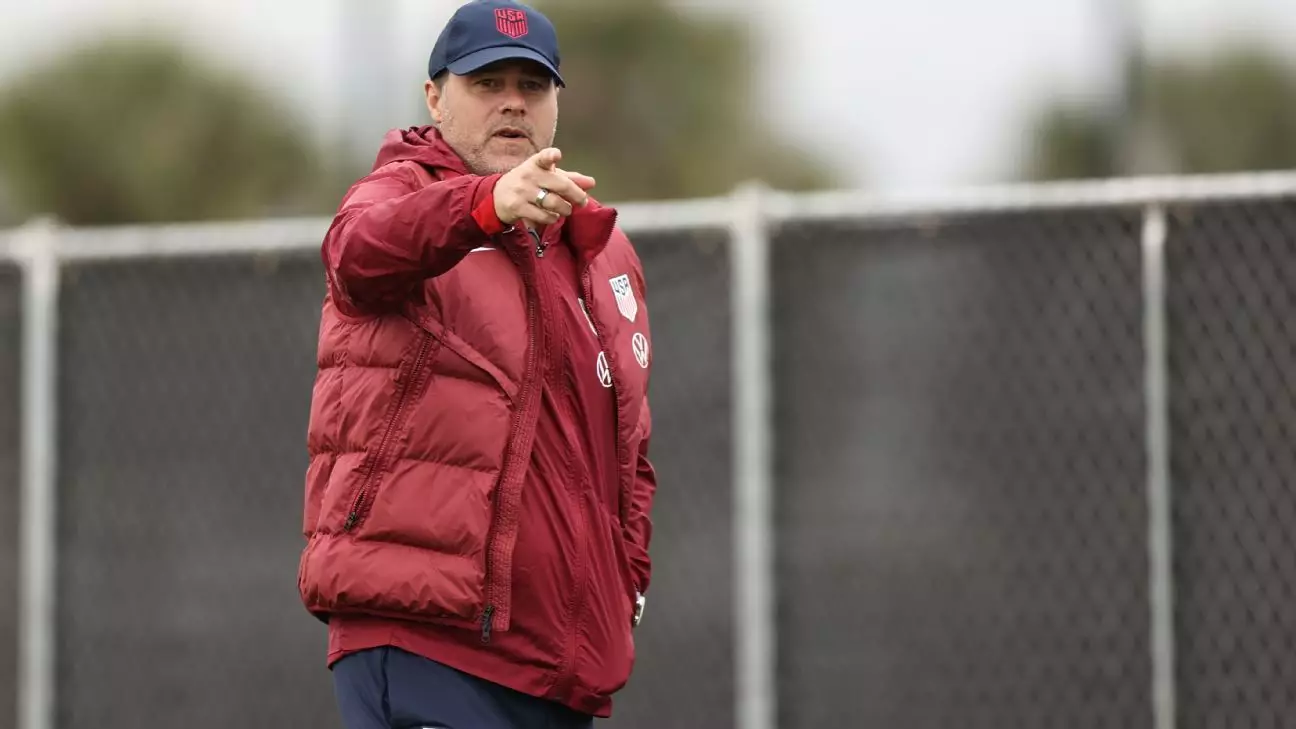In the competitive landscape of soccer, where nations have long-standing traditions and immense talent pools, the United States men’s national team (USMNT) under the stewardship of head coach Mauricio Pochettino faces the critical challenge of mindset reconstruction. Pochettino’s assertion that American players have the requisite skill to compete with soccer powerhouses like Spain and Argentina, hinges on developing a more assertive mentality. His call for a shift towards a “little more arrogance” isn’t merely about confidence; it underscores a pivotal transformation in how players perceive their abilities on the field.
A perception gap exists between the American players and their foreign counterparts. While talent may be present, confidence in that talent can lag significantly. Pochettino’s insights reflect the reality that belief plays a vital role in performance, especially on the international stage. By placing emphasis on cultivating a stronger belief system, he is encouraging players to approach matches with the mindset that victory is not just an aspiration but an expectation.
Pochettino, who joined US Soccer in September 2024, is clear about the tactical goals he has set for the team, especially as they prepare for the 2026 World Cup, which the U.S. will co-host. Despite the absence of qualifying matches for the tournament, his demand for aggressive play is evident. Soccer, as he puts it, revolves around ball possession and the imperative to convert opportunities into goals.
His coaching philosophy emphasizes not just having the ball but also the necessity of being dynamic and ready to capitalize on openings. “We need to react and we need to be explosive,” Pochettino noted, illustrating the intensity he wishes to instill within the squad. This approach seeks to transform the team into a competitive unit that not only controls the game but also makes aggressive attempts to secure victories, which is essential in transforming U.S. soccer’s image on the international stage.
One of the most compelling elements of Pochettino’s vision is his emphasis on adapting the Argentine style of play and mentality. He believes that American players could benefit immensely by embracing the fierce dedication to soccer that characterizes Argentine athletes. His comments portray a deep respect for the cultural elements intertwined with soccer in Argentina – the emotional investment players have regarding losses and victories.
The notion that losing a ball or game should evoke a strong emotional reaction is foreign to many American players, who may not possess that level of commitment to their national identity on the pitch. “When you play for your national team and you’ve listened to your anthem, you need to feel something in your skin, inside yourself,” Pochettino’s words echo a call to patriotism that can invigorate the spirit of the team.
When players feel a deeper connection to their jersey and their nation, they may perform with greater fervor, dedication, and unity. Pochettino aims to engrain this passion and emotional integrity into the team’s fabric, which could well serve as a catalyst for elevating their game to a new height.
Early indications suggest that Pochettino’s influence is already taking shape. Players participating in the USMNT’s January camp have begun to experience the transformation he champions. Zack Steffen’s remarks underline the intensity of Pochettino’s methods: “He’s very demanding, very intense on the field.” The expectation placed on players is designed not only to push them, but also to cultivate a culture of mutual trust between the coach and players.
Such relationships are crucial for developing a cohesive unit capable of facing the likes of Argentina and Spain. The coach’s open-door policy for communication between players and staff fosters an environment where questions can be asked and clarity sought. As the team prepares for their upcoming friendly against Venezuela in Florida, these initial impressions of rigorous training sessions are setting the foundation for what Pochettino hopes to build.
As the USMNT embarks on the road to 2026, the strategic direction set by Mauricio Pochettino could define their success. While they are not participating in qualifiers, the emphasis on rigorous training, mental resilience, and a commitment to aggressive and disciplined play will undoubtedly shape their development in the years leading up to the World Cup.
In translating his vision into practice, Pochettino seeks to rekindle the pride Americans feel for their national soccer team. By fostering an environment that balances skill with a tenacious mentality, he aims to bridge the gap that separates the U.S. from soccer’s elite, ultimately sculpting a team that can compete at the highest levels. The players now have the opportunity to transform their approach and potentially rewrite the history of American soccer on the grandest international stage.

